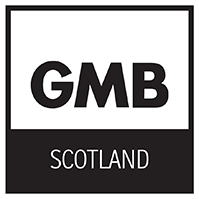NHS Scotland accused of risking lowest-paid workers in pandemic
The lowest-paid workers in NHS Scotland were placed at more risk than doctors and nurses during the pandemic, the Scottish Covid-19 Inquiry heard today.
GMB Scotland, representing staff across the health service, told the inquiry how the fears and concerns of support staff were ignored as hospitals struggled to contain infection in the first weeks and months of the pandemic.
Karen Leonard, GMB Scotland organiser in NHS Scotland, said many domestic staff, catering workers and porters felt abandoned and unsupported.
She said they were not offered the same quality of personal protective equipment (PPE), such as face-fitting FFP3 masks, as clinical staff and that initial risk assessments did not even consider their roles and how to keep them safe.
Meanwhile, guidance meant to protect frontline workers from infection often did not reach them because they did not have access to emails at work and managers were working from home.
In her statement to the inquiry, Leonard said the inequality in treatment was "appalling" adding: “The observation was that the higher up the NHS banding you were, the less likely you were to be at the hospital. The impact was that staff felt more vulnerable and unsupported.”
Leonard, who gave evidence in Edinburgh today [WEDNESDAY], Leonard said domestic and other support staff were equally at risk from the airborne infection and should have been given exactly the same protection as doctors and nurses but were not.
She said: “Often our members would not even know if patients in the rooms they were being asked to clean had Covid or not.
“A lot of the time they were going into these rooms with just a blue, surgical mask and a plastic apron for protection and would only know the patient had Covid because the clinical staff were wearing different protective equipment.
"The facility staff, the domestics, catering staff and porters, were being treated differently when it came to prioritisation for PPE. There was an inequality.
“They were carrying out their duties and putting themselves at the same risk as clinical staff without being given the same protective equipment or issued with the same equipment.
“Facility staff were often the last workers to find out about guidance because they did not have email access at work or the appropriate PPE.
“This was despite being required to clean spaces where there had been Covid patients or to transfer those patients. Those workers deserved as much protection as those involved in clinical care
“The pandemic really demonstrated the value decision makers put in different job groups.”
The feeling of vulnerability and lack of protection felt by hospital support staff was shared by ambulance crews, Leonard told the inquiry.
She highlighted many incidents when crews were being asked to use out-of-date PPE and face masks that were ill-fitting and often too big for women crew members.
There were also serious but unaddressed concerns about the lack of ventilation in the back of ambulances with crews warning potentially infected air was being recirculated.
She said more ambulance crew members than would be expected seem to be suffering Long Covid with some forced to stop working because of the enduring and debilitating symptoms, particularly respiratory problems.
Crew members also suffered mental health problems because of their work during the pandemic but felt unsupported by managers.
Leonard also highlighted the risk to the mental health of nurses during the pandemic when, she said, many were newly-qualified but immediately asked to work in Intensive Care Units because of staff shortages.
She said: “They did so with little experience and were placed in the worst of it.
“You’re a newly qualified nurse and should be mentored, have training but they were just expected to pick it up on their own. That is a lot to ask.”
Meanwhile, staff in NHS24 were worried about social distancing in the call centre taking calls from worried patients when managers decided staff should be one metre apart instead of two.
After the issue was raised by GMB Scotland, the health secretary immediately intervened to back a two metre rule but Leonard said that was only one of many occasions when staff should have been listened earlier to but were not.
She voiced hope the inquiry will ensure that the voice of workers on the ground is heard more clearly by those taking decisions about their safety in the future.
“Too often during the pandemic the guidance and proposals of managers and officials did not survive contact with the reality of our members’ jobs.
“Those carrying out the jobs must be consulted to ensure that the guidance and proposals are workable in practice.
“Those working in the lowest paid occupations cannot be forgotten again.”


